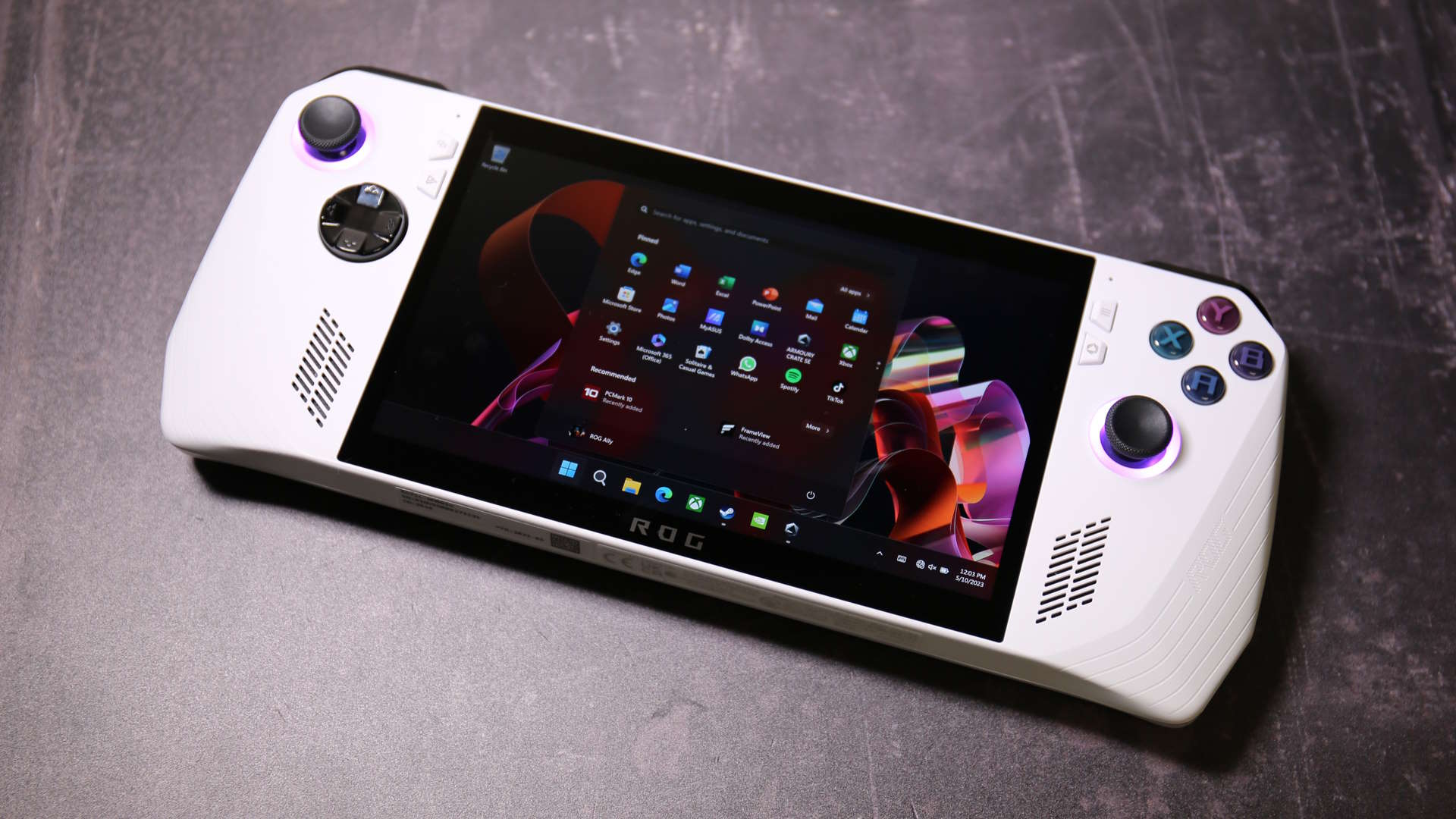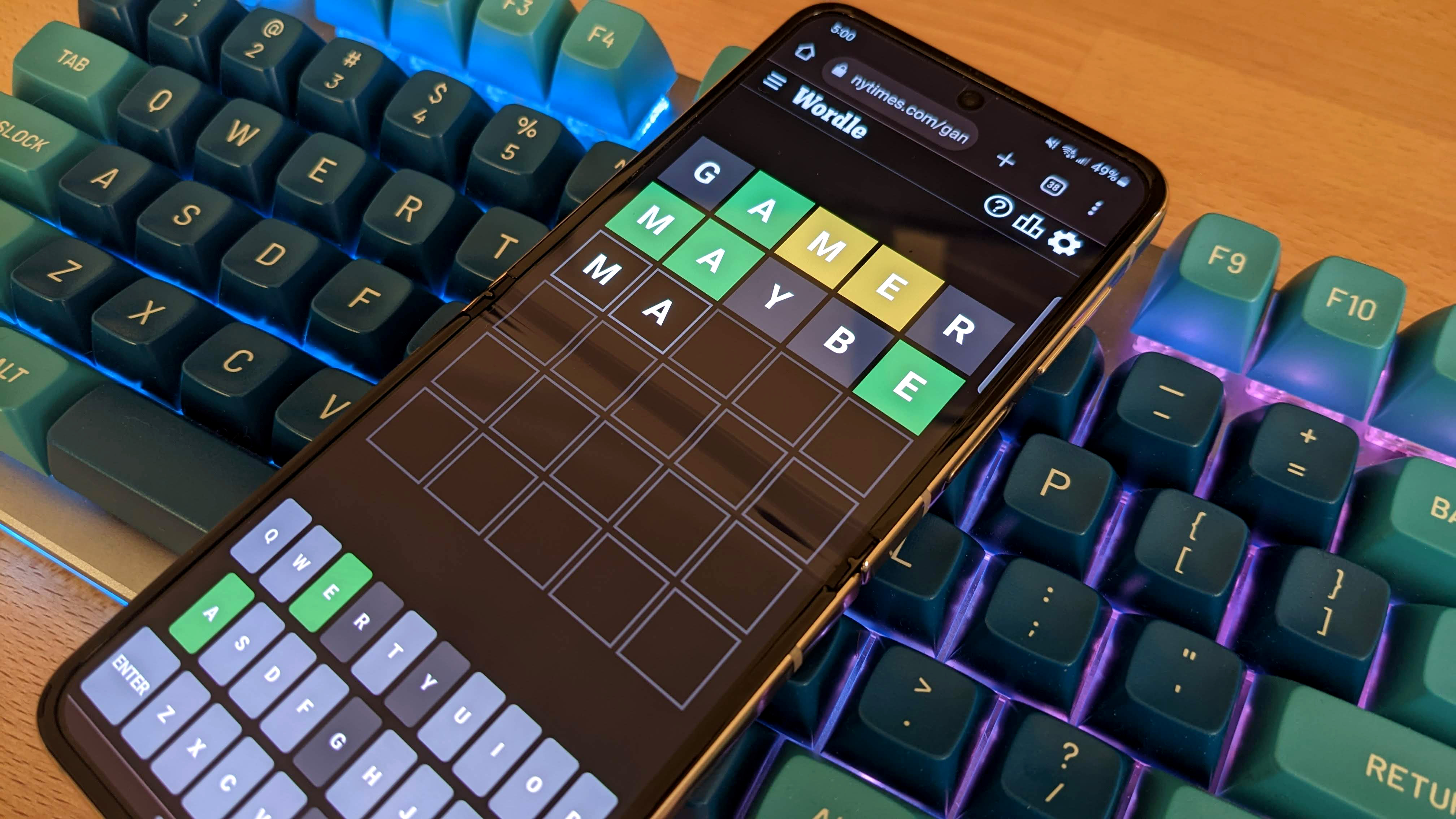
"...under certain thermal stress conditions the SD card reader may malfunction," an Asus representative says.
The ROG Ally may run into thermal issues related to the operation of its MicroSD card. The handheld device launched last month appears to have a design flaw that means under certain conditions the MicroSD card reader on the device may stop working, Asus has said in a statement.
“After confirmation from internal testing, under certain thermal stress conditions the SD card reader may malfunction,” an Asus representative has said over on the Republic of Gamers Discord (via Tom’s Hardware).
If you don’t own an ROG Ally, or perhaps even if you do, you might’ve missed what this MicroSD issue is all about. Essentially, some MicroSD cards fitted into the handheld PC’s MicroSD slot at the top of the device are malfunctioning due to the heat given off by its components. The issue tends to show itself as the MicroSD card being unable to be mounted or read by the device. While some users are able to recover the card on a PC, others have reported that their cards are toast ever since the issue arose.
One user, Telios, on the ROG Ally Subreddit Discord where there’s a dedicated thread for SD cards, says of the issue: “Safe to say the reader on mine is hosed.”
Another user, BackwaterHero, says they managed to get their card back up-and-running with a USB reader: “Update, formatted and renamed to exfat on the ally using a sd card reader via USB. Everything is showing up again and working.”
Multiple users on Reddit report that turning on Core Isolation in Windows Security settings actually got their MicroSD card working again in the device, which would hint at a software issue, despite Asus confirming thermal issues. There may be a myriad of forces at work here that ultimately lead to a frustratingly difficult to diagnose/fix issue.
(Image credit: Asus)
The clearest remedy to the issue is to use the internal SSD or upgrade the internal SSD to expand the handheld’s storage instead of buying a MicroSD card altogether. Though that’s hardly a fix for those suffering issues already.
Asus says that a measure to “alleviate the issue” is on the way in the form of an update that fine-tunes the fan curves to “improve reliability”, which is something YouTuber CPPC TEK has attempted themselves. They’ve reported no issues with MicroSD cards since, but the issue isn’t guaranteed to happen on every device and so it’s difficult to see this as conclusive evidence of a fix.
(Image credit: Future, FromSoftware)
Steam Deck review: Our verdict on Valve’s handheld PC.
Accessories for the Steam Deck: Get decked out
Steam Deck availability: How to get one.
Steam Deck battery life: What’s the real battery life of the new device?
Steam Deck – The emulation dream machine: Using Valve’s handheld hardware as the ultimate emulator.
If it doesn’t work to fix the issue, it’s possible Asus will have to revise the design for future models. In the meantime, Asus is offering support for anyone that has had an issue with their MicroSD card.
It’s possible you own the device and haven’t run into the issue, though. It’s not impacting every ROG Ally as far as we know today, and not every user will use the MicroSD slot, either. If you’re currently running okay or haven’t used the slot, it’d likely be best to hold off on any storage upgrade plans unless you are looking to replace the internal 2230 SSD altogether with a larger one. Any SSD that’s compatible with the Steam Deck should do, including these Sabrent Rocket 2230 NVMe drives we reviewed earlier in the year.






